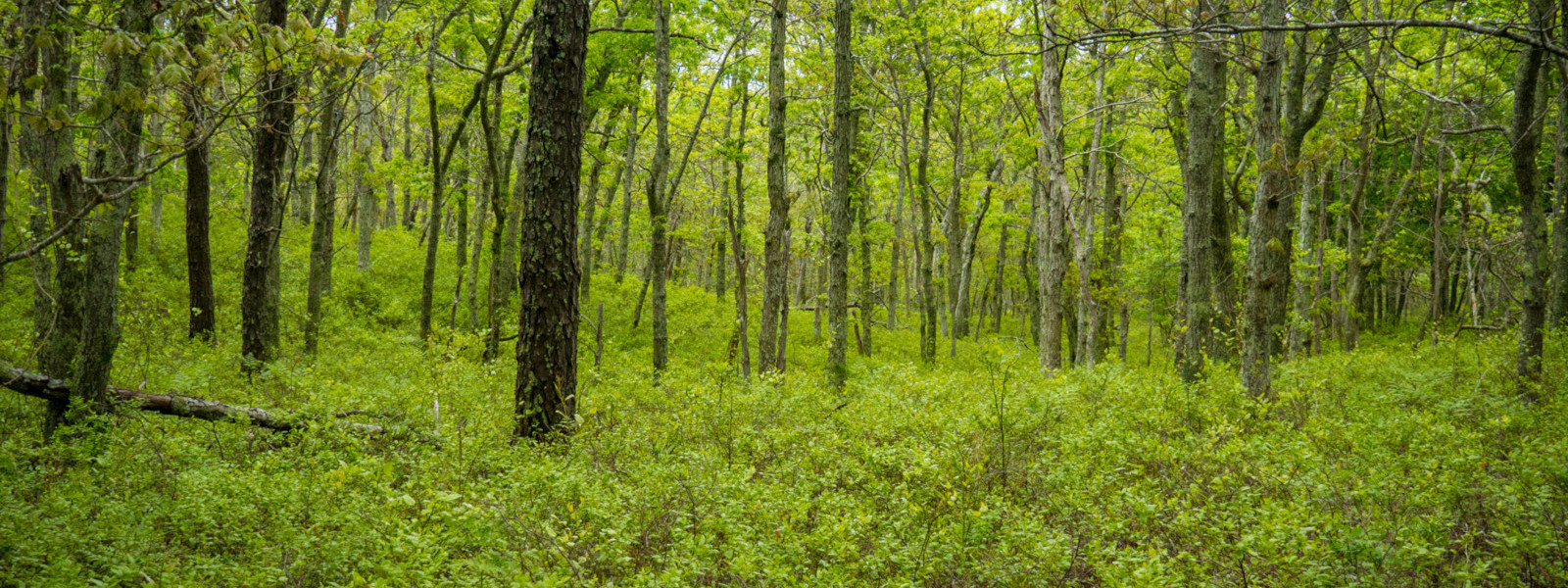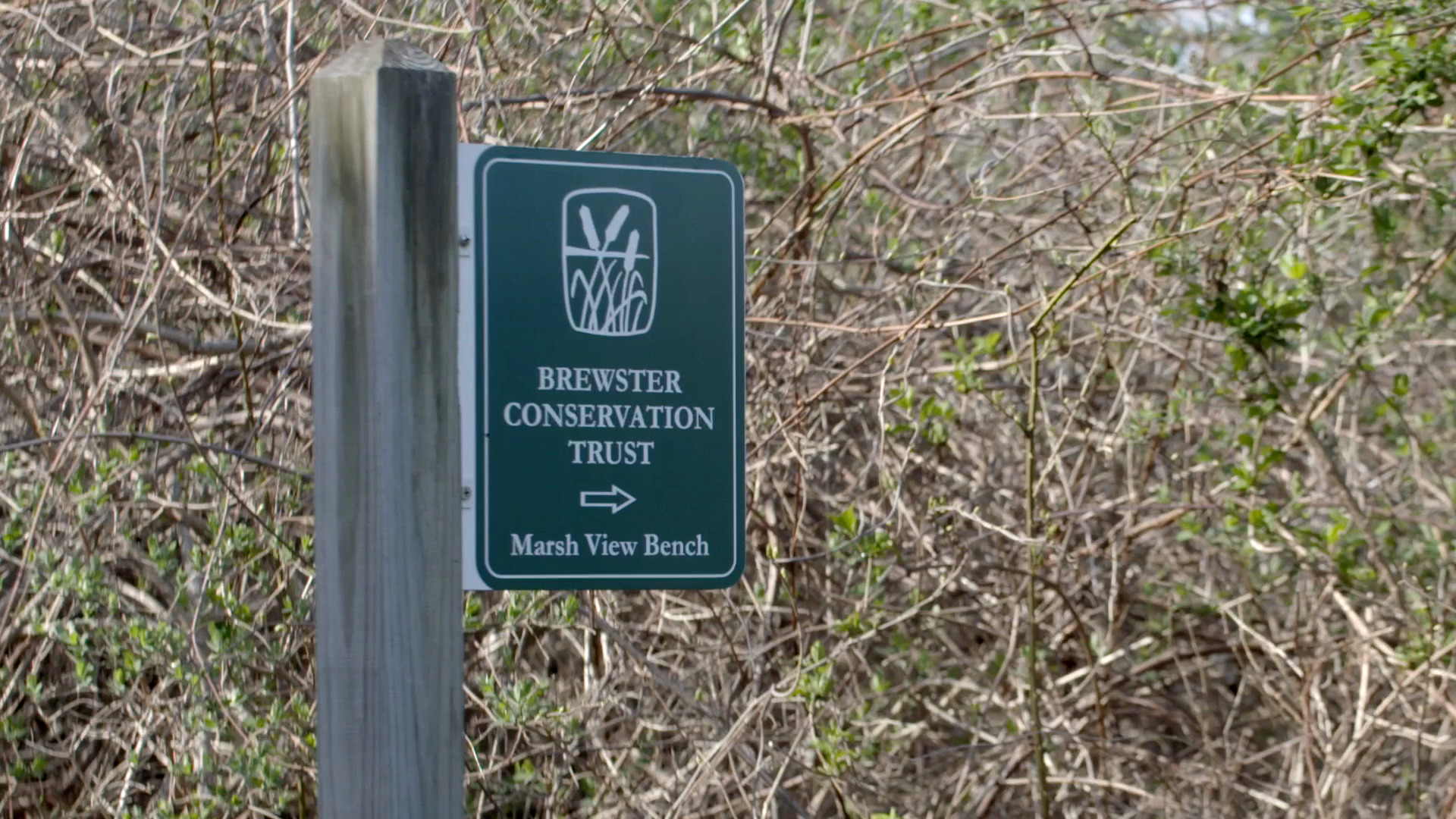Vision. Generosity. Legacy.
Click on the photo above to hear one BCT land donor's story.
Land Owner Options
All people benefit from a healthy, scenic, and sustainable environment, and all people can play a part in protecting and preserving it. Brewster Conservation Trust has a variety of ways in which you can help. Learn more about some of the options available to you by clicking on the button to the right.
Land conservation is about more than limiting development or improving scenery. It's about preserving the places people need and love, protecting wildlife, and safeguarding the future. Land conservation is important to our communities, our well-being, and our planet.
Communities - Public access to natural spaces offers opportunities for recreation and play, education and learning, and solitude as well as socializing. Nature teaches us, unites us, and restores us.
Well-being - The research is clear. The natural world is a powerful antidote to stress, anxiety, and an ever-increasing pace of life. A clean environment is also important to our physical health, from the air we breathe to the water we drink.
Our planet - Climate concerns pose big threats. On Cape Cod, that is especially true as undeveloped land dwindles, leaving us exposed to erosion, water degradation, and loss of wildlife.
When you conserve land, you protect the vital ecosystem needed to support strong communities, healthy people and our one and only planet.
For more information contact Amy Henderson, BCT Executive Director at 508-694-6720
Land Owner Options
For more information contact Amy Henderson, BCT Executive Director at 508-694-6720
Outright donation (fee simple transfer)
The simplest way to keep your land in a protected state is to give it to a non-profit conservation organization like Brewster Conservation Trust (BCT). Town, state, and federal governments are also qualified to receive land in this way. A gift ensures long-term protection of the land.
It is necessary only to obtain approval and acceptance from BCT or the organization or agency to which the land will be donated before deeding the land. For a confidential conversation about the prospect of giving land, call Amy Henderson, BCT Executive Director at 508-694-6720.
As a donor, you may be eligible for tax benefits in the form of federal income tax deductions, potential estate tax reduction, and relief from property taxes. A donor is relieved of management responsibilities and automatically absolved of liability associated with any trail use or other activity.
The majority of BCT’s protected properties have been received as gifts. In fact, about 80 percent of the properties preserved by land trusts on Cape Cod have been donated and about 30 parcels are donated each year in this manner.
Typically, the only cost to the land donor is for an appraisal, which certifies the value of the donated land for federal income tax deductions. Appraisals are needed when the claimed value of the deduction is more than $5,000. Land trusts usually ask donors to pay remaining property taxes on the land before it becomes tax exempt in the next fiscal year.
Donation by will (bequest)
A gift of land made through a will entitles the donor to retain full use of the land during his or her lifetime and assures that it will be cared for in the future. It is advisable to discuss the gift with the receiving organization prior to inclusion in a will, to ensure a plan for the care of the land. The donor is responsible for real estate and income taxes for the property during his or her lifetime, but removing the land from an estate will reduce potential inheritance tax for any heirs.
Cape Cod land trusts together typically acquire one property per year by bequest. These properties tend to be large and valuable, often part of a family’s estate. In 1993 the Barnstable Land Trust acquired a large coastal woodland fringed with salt marsh through a bequest. The donation lowered the value of the family estate by about $1 million, enabling the family to retain most of the remaining land rather than selling it for development to pay high inheritance taxes.
Elizabeth Perry and Carl Ahlstrom receive BCT’s Conservationist of the Year Award
In 1992, the Brewster Conservation Trust received a bequest from Ruth Priest of one-half acre near Breakwater Beach with a small house of historic architectural significance. In her bequest, Ruth instructed that the house be removed and the land restored to its natural condition. The so-called “narrow house” was dismantled by hand and re-assembled in West Brewster by Carl Ahlstrom and Elizabeth Perry. (Carl is descended from the Dillingham family which originally owned what is now Brewster’s oldest house.) In 2002, Carl and Liz permanently protected their nine-acre property with a conservation restriction. In 2005, Carl and Liz were honored as BCT’s Conservationists of the Year.
Donation with a reserved life estate
A landowner who gives land with a reserved life estate retains the use of the land during his or her lifetime and the lifetimes of specified family members. A reserved life estate insures that the land is protected in perpetuity, yet allows the donor to reside on it and maintain the land. The tax advantages with a retained life estate are less that those of an outright donation.
As an example, in 1993 a family donated five acres of dune and salt marsh to the Truro Conservation Trust while reserving the right to use the parcel for family boating and beach bathing during their lifetimes. The reserved right slightly lowered the value of the land gift.
Gifts of other properties
Many conservation organizations and agencies will accept a gift of property with little or no environmental value, sell it on the open market (with restrictions, if appropriate), and use the money for the preservation of other ecologically significant lands. The landowner is eligible for the same tax benefits that a gift of conservation land would generate.
This option has been rarely used on Cape Cod, but in 1988 the Brewster Conservation Trust received a gift of title to a time-sharing unit in a local condominium. The Trust sold the unit for $2,000 and put the money towards the purchase of the Windmill Meadows parcel. The donor received a tax deduction for the value of the time-sharing unit.
Sale of land
Sale at fair market value
Sale at fair market value is the sale of property at the price a knowledgeable buyer would pay for the land. If the land is sold at full value and has appreciated in value since its purchase, the seller will be liable for income tax on the capital gain. This can affect the net profit from the sale. No charitable deductions flow from a sale at full value.
Many Cape Cod towns have purchased open space at fair market value, owing to the intense competition for land during the development boom. But land trusts, caught between the high cost of land and their own lack of funds, have almost never paid full value for land.
A notable exception was the BCT purchase of the Windmill Meadows next to Drummer Boy Park for $145,000, at the peak of a real estate boom in 1988. BCT considered it a strategic purchase, preserving an unobstructed view of Brewster’s historic windmill across wildflower and grassland meadow for all to enjoy from busy Route 6A. The seller realized no tax deductions.
A bargain sale
A sale at less than fair market price — is part donation and part sale to nonprofit organization such as Brewster Conservation Trust or to a government agency. A bargain sale may entitle the seller to a federal income tax deduction for a charitable contribution and also to a reduction in capital gains tax. The value of the federal income tax charitable contribution for the seller equals the difference between the fair market value and the lower negotiated selling price. The net proceeds of a bargain sale, when the tax deduction is taken into account, may come close to the proceeds of a fair market sale.
Capital gains must be calculated on the sale part of the transaction. A gain is recognized if the property is sold for more than its basis (usually, the original cost plus improvements and minus depreciation). For bargain sales, the basis of the property is allocated proportionately between the part sold and the part donated. The income tax charitable deduction from a bargain sale could be greater than the capital gains tax that results from the sale at market value.
Here are some examples of bargain sales:
In 2007, the Brewster Conservation Trust purchased 4.1 acres with 284 feet of pond shoreline for $62,000. The seller’s appraised fair market value was $80,000. The bargain sale to BCT furthered its Priority Ponds Project to preserve pondfront lands to help protect water quality, wildlife habitat, and recreational values.
In the 1990s, the Truro Conservation Trust purchased six acres of beachfront land for $200,000, the Orenda Wildlife Land Trust purchased 28 acres of land in Brewster at less than $5,000 per acre and the Chatham Conservation Foundation purchased 23 acres along Goose Pond for $382,000. All of these purchases were paid for through private fundraising. In each case, the seller received substantial tax deductions for selling below appraised fair market value to a charity.
Installment sale
An installment sale allows a conservation organization to purchase property over a period of years. The use of the land and the responsibility for payment of property taxes until the sale is complete are negotiable terms of the agreement. The seller benefits financially by spreading the income and the taxable gains over several years. The amount of taxable gains depends on whether or not the land is sold at fair market value.
The Bourne Conservation Trust has used this technique successfully to buy many parcels. In a few cases, the sellers arranged financing by “taking back” mortgages, enabling the land trust to raise money and pay off the purchases over time.
Conservation restrictions
A conservation restriction, also known as a conservation easement, is a legally binding agreement between a landowner and a qualified nonprofit organization such as the Brewster Conservation Trust (BCT) or a town, state or federal government. The landowner retains title to the property but extinguishes certain development rights in the property.
Conservation restrictions typically restrict dumping, mining, paving and development of houses, while allowing traditional family uses of the property. The restricted land can be sold, but the restriction runs with the land to the new owner.
Tax authorities recognize the fact that the landowner has relinquished a significant portion of the property’s economic value by extinguishing the right to develop the property to the fullest extent. The Internal Revenue Service may grant income tax deductions and estate tax reductions equal to the value of the land given up under a permanent conservation easement. The landowner must get an appraisal of the extinguished value to justify the deduction.
BCT is available to discuss and shepherd the conservation restriction process and to explain potential tax relief, but also recommends that you consult your own tax adviser about any potential tax savings.
Cape Cod towns typically offer property tax reductions to landowners who place conservation easements on their land. The reduction in Brewster can be 85 percent without allowing public access (eg: trail) or 95 percent if public access is allowed. The property tax reduction reflects the diminution in value caused by extinguishing certain development rights such as residential, commercial, recreational or industrial building.
Conservation restrictions have been used effectively on Cape Cod to protect significant parcels of land. To date, more than 5,000 acres have been protected in this manner. Types of land that have been protected by conservation restrictions include salt marshes, barrier beaches, islands, dunes, pine barrens, shrub swamps, meadows, pond shores and freshwater streams.
About a dozen properties are preserved each year on the Cape by conservation restriction. In a recent example on Cape Cod, a 5.5-acre parcel of buildable land was valued at $295,000 before the conservation restriction was donated and $85,000 after the restriction. The landowner was entitled to a $210,000 charitable deduction for federal income tax. The landowner’s heirs could also benefit from reduced inheritance tax because the estate’s value was lowered. The town reduced the land’s assessment by 85 percent as well.
The Brewster Conservation Trust has helped many Brewster landowners protect their properties from development in recent years, as the list of protected properties shows. For example, a Satucket Road landowner has given conservation restrictions to the BCT on some 36 acres in two phases. In 2003, BCT received a conservation restriction that permanently protected waterfront land on Cape Cod Bay. In 2004, BCT received a conservation restriction to preserve nearly 70 acres in the Stony Brook Valley owned by the Cape Cod Museum of Natural History. The Stony Brook Valley conservation restriction not only protects critical wildlife habitat and water resources, but also forever preserves the scenic view enjoyed by so many from historic Route 6A.
Deed restrictions
Restrictions guiding the future use of property may be placed in the deed at the time the property is transferred. Deed restrictions differ from conservation easements in that there is not a third party that assumes responsibility for monitoring and enforcing the restrictions placed on the land. The seller is responsible for enforcing the restrictions placed on a parcel of land before it is sold. If the seller has placed restrictions in the deed and retains no land nearby, he or she may not be able to enforce the restrictions against the subsequent owners of the land. Under Massachusetts common law, most deed restrictions expire after 30 years.
Deed restrictions will usually affect the market value of the land if they significantly limit development potential. The presence of a restriction may lower the price if the property is sold, or lower the value of the gift if the land is donated to a conservation agency. The IRS does not allow a claim for a loss in value resulting from deed restrictions as a charitable deduction. A donation of land to a conservation agency, in which the agency inserts the deed restrictions, does allow a claim of the full fair market value of the land as a charitable contribution.
For more information on land owner options please contact Amy Henderson, BCT Executive Director at 508-694-6720


